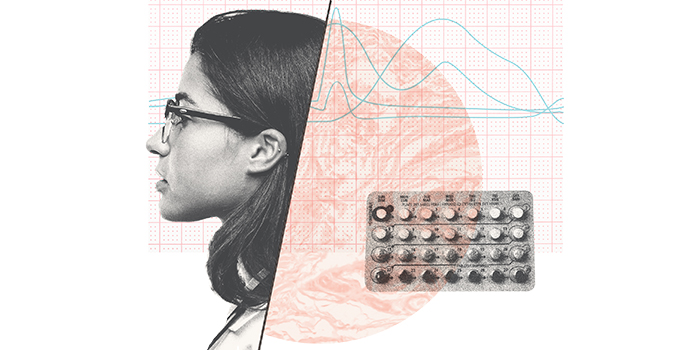
Preterm-Cleveland v. David Yost
What's at Stake
On September 2, 2022, the РЯАФУХПЊНБНсЙћ, the РЯАФУХПЊНБНсЙћ of Ohio, Planned Parenthood Federation of America, and the law firm WilmerHale filed a lawsuit in the Hamilton County Court of Common Pleas bringing a state constitutional challenge against SB 23, a law banning abortion starting at approximately six weeks of pregnancy. This lawsuit came more than two months after the draconian bill took effect on June 24, 2022 for the first time since it was passed in 2019, causing an immediate, devastating crisis across the state. Due to the ongoing irreparable harm to Ohioans, the reproductive rights organizations withdrew the lawsuit they initially filed in the state Supreme Court in late June and asked the lower court to grant immediate relief blocking the ban.
Summary
After hearing oral argument on October 7, 2022, the Hamilton County Court of Common Pleas granted the plaintiffsт request for a preliminary injunction against SB 23, temporarily blocking the State from enforcing the ban while the case continued. Then, on October 24, 2024, following final briefing on the merits, the Hamilton County Court of Common Pleas issued a final order holding the vast majority of SB 23тincluding its six-week banтto be unconstitutional, and permanently enjoining its enforcement. This marks the first permanent injunction stemming from Ohioтs Reproductive Freedom Amendment, which took effect in December 2023. This is also the first permanent injunction throughout the country of an abortion ban following the passage of a pro-abortion rights ballot amendment. The reproductive rights organizations and WilmerHale filed the lawsuit on behalf of Preterm-Cleveland, Planned Parenthood Southwest Ohio, Planned Parenthood of Greater Ohio, Womenтs Med Group Professional Corporation, Northeast Ohio Womenтs Center d/b/a Toledo Womenтs Center, and Dr. Sharon Liner, an individual abortion provider, to protect the right to abortion in Ohio under the Ohio Constitution.
Banning abortion for women and anyone that needs abortion care disproportionately harms people of color, those struggling to make ends meet, young people, rural residents, immigrants, people with disabilities, and LGBTQ+ communities. If abortion is banned in Ohio, Black women and other people of color will bear the brunt of the harm it inflicts. These communities already face a severe maternal mortality crisis that is worse in states that ban abortion.
Legal Documents
-
10/24/2024
Preterm v. Yost, Hamilton County Decision
Date Filed: 10/24/2024
-
09/02/2022
Preterm-Cleveland v. David Yost: Complaint
Date Filed: 09/02/2022
-
09/02/2022
Preterm-Cleveland v. David Yost: TRO/PI Motion -
09/09/2022
Defendants' Opposition to Plaintiffs' Motion for Temporary Restraining Order -
09/08/2022
Plaintiff's Reply in Support of Plaintiff's Motion for Temporary Restraining Order -
09/14/2022
Decision and Entry -
10/02/2022
Defendants' Opposition to Plaintiffs' Motion for Preliminary Injunction -
10/12/2022
Order for Preliminary Injunction -
10/12/2022
Defendants' Notice of Appeal -
12/16/2022
Opinion Dismissing Appeal -
01/03/2023
Defendants' Notice of Appeal -
01/31/2023
Plaintiffs' Amended Verified Complaint -
02/02/2023
Appellees' Memorandum in Opposition to Jurisdiction -
03/14/2023
Entry Accepting Appeal -
05/01/2023
Appellants' Merits Brief -
06/20/2023
Appellees' Merit Brief -
07/06/2023
Appellants' Reply Brief -
Plaintiffs' Amended Verified Complaint for Declaratory and Injunctive Relief -
03/29/2024
Defendants' Response to Motion for Judgement on the Pleadings
Date Filed: 09/02/2022
Date Filed: 09/09/2022
Date Filed: 09/08/2022
Date Filed: 10/02/2022
Date Filed: 10/12/2022
Date Filed: 01/31/2023
Date Filed: 02/02/2023
Date Filed: 03/29/2024
Press Releases
Ohio Judge Permanently Strikes Down Six-Week Abortion Ban, Which Clearly Violates the Ohio Constitutionтs Reproductive Freedom Amendment
Statement on Ohio Six-Week Ban Abortion Litigation Following Passage of Issue 1
Supreme Court of Ohio will Hear Oral Argument Tomorrow in Challenge to Extreme Abortion Ban
Ohioтs First District Court of Appeals Denies Stateтs Request to Take Up Six-Week Abortion Ban, Sends Case Back to Hamilton County Court of Common Pleas
Ohio Lower Court Grants Preliminary Injunction; Six-Week Abortion Ban Will Remain Blocked
Ohio Lower Court Blocks Six-Week Abortion Ban, Restoring Reproductive Rights Across State